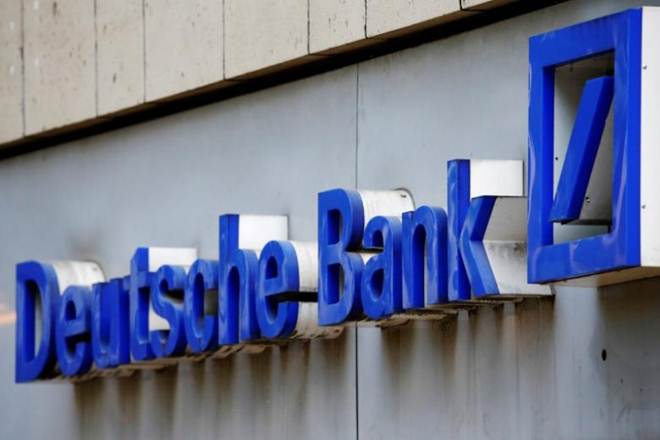Germany has an extraordinary crowded banking landscape. According to the magazine The Economist, there are 1580 banks that can be grouped into private, public and co-operative entities. Public banks, mostly savings banks, account for 385 units. Obviously, one has not to forget the Landesbanken, probably half a dozen. There are also 875 co-ops. DZ Bank (Germany´s second biggest bank by assets) is their clearer and corporate lender. According to some consultants (among others Oliver Wyman), German Bank´s average return on equity has dwindled down to 1% in 2016. As consumer and small-business lending is dominated by public savings banks, commercial lenders have a tough time to make money.
Within this landscape, Germany´s largest bank, Deutsche Bank (DB) has been exposed to a vicious cycle of declining revenue, sticky expenses, lowered ratings and rising funding costs according to the CFO. Last year DB has made a profit of EUR 341 m. This was the first profit since 2014. DB has a balance sheet of Eur 1.4 tr, and its return on equity has been a meagre 0.4% for 2018. This resulted in the fact that DB is valued at the bottom of the European bank sector with a price-to-book value of less than 0.3 times. So, investors believe it is more worth to be un-mantled rather than staying together and working as a going entity.
What are key-decisions DB needs to take?
German policy makers and CEOs see a stable DB as the backbone of their export led industrial policy. DB retains 78% of DWS a major 650 bn asset manager. The sales of DWS should provide DB with the necessary liquidity to finance its own strategy. However, it is far from certain what would be the accurate strategy for the asset management business. IS DB ready to relinquish control of DSW?
DB´s investment bank is continuously in the limelight as well. Revenue has dropped by a third at DB´s investment bank over the past three years. It seems that the US investment bank has been loss making in nine of the past 10 years. Last year it was put on a federal list of problem banks. Should the investment bank shift away from the US to Europe and Asia?
How toxic is DB´s balance sheet?
DB, according to Bloomberg, has one of the largest concentrations of level 3 assets- the most illiquid securities that are priced based on internal models.
As DB´s cost of lending tripled in the last year, long dated assets would have become more expensive to own. Its five-year euro credit-default swap jumped from 65 basis points to about 220 basis points in December 2018.
Bloomberg notes that during the bank´s 2016 crisis of confidence, clients were pulling billions very day. And though it was sitting on USD 230 bn in cash and liquid assets, DB´s computer system was not able to report to regulators exactly how much it held in liquidity on a daily basis.

Why combine Deutsche with another inefficient bank such as Commerzbank?
The history of German bank mergers is not encouraging: Commerzbank took years to absorb Dresdner Bank, whereas DB continues to wrestle with its acquisition in 2010 of a majority in Postbank.
The New York Times notes that both banks have large overlapping branch networks, which would have to be trimmed. Job cuts are costly in Germany because of labour laws. There are a few areas where the banks complement each other. Commerzbank is strong in lending to midsize German exporters. DB is more international and could help those companies handle foreign financial transactions. Combined the two would have nearly 20% of total deposits in Germany. The good news is that Commerzbank has quit investment banking, whereas DB has clung on.
Why is the government getting now involved?
According to the New York Times Olav Scholz, the German finance minister, may hope to raise the fortunes of his SPD party, whose poll numbers have gone in the same direction as DB shares. Even Merkel´s Christian Democrats are talking about industrial policy, a term that implies government involvement in company decisions.
Politics aside, the state has a limited direct say. It owns 15% of Commerzbank, and it has no stake in DB. Rumour has also linked Commerzbank with French and Italian suitors writes the Economist. DB would prefer a deal with Switzerland’s UBS, but ministers may be loth to see another big bank in foreign hands.
Conclusions
According to the Financial Times, the momentum towards a merger of Deutsche Bank (balance sheet Eur 1.3 tr) and domestic German rival Commerzbank looks increasingly unstoppable. The question is when will it happen and not if. Even the most bearish investor is not predicting DB´s demise. Indeed, there have been some signs of operational progress recently. A merger would allow the Government to enter the DB shareholder register through the back door (it owns 15% of Commerzbank). A great insurance as it would allow fresh capital to be injected in case of disaster.